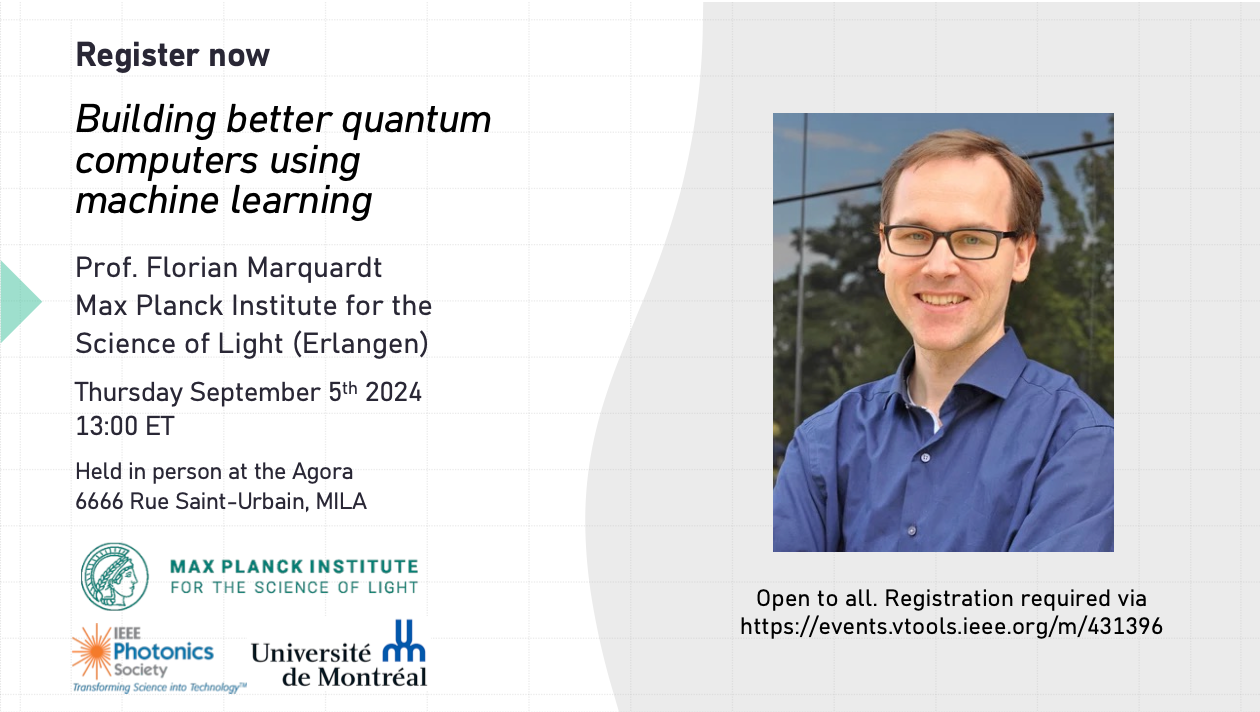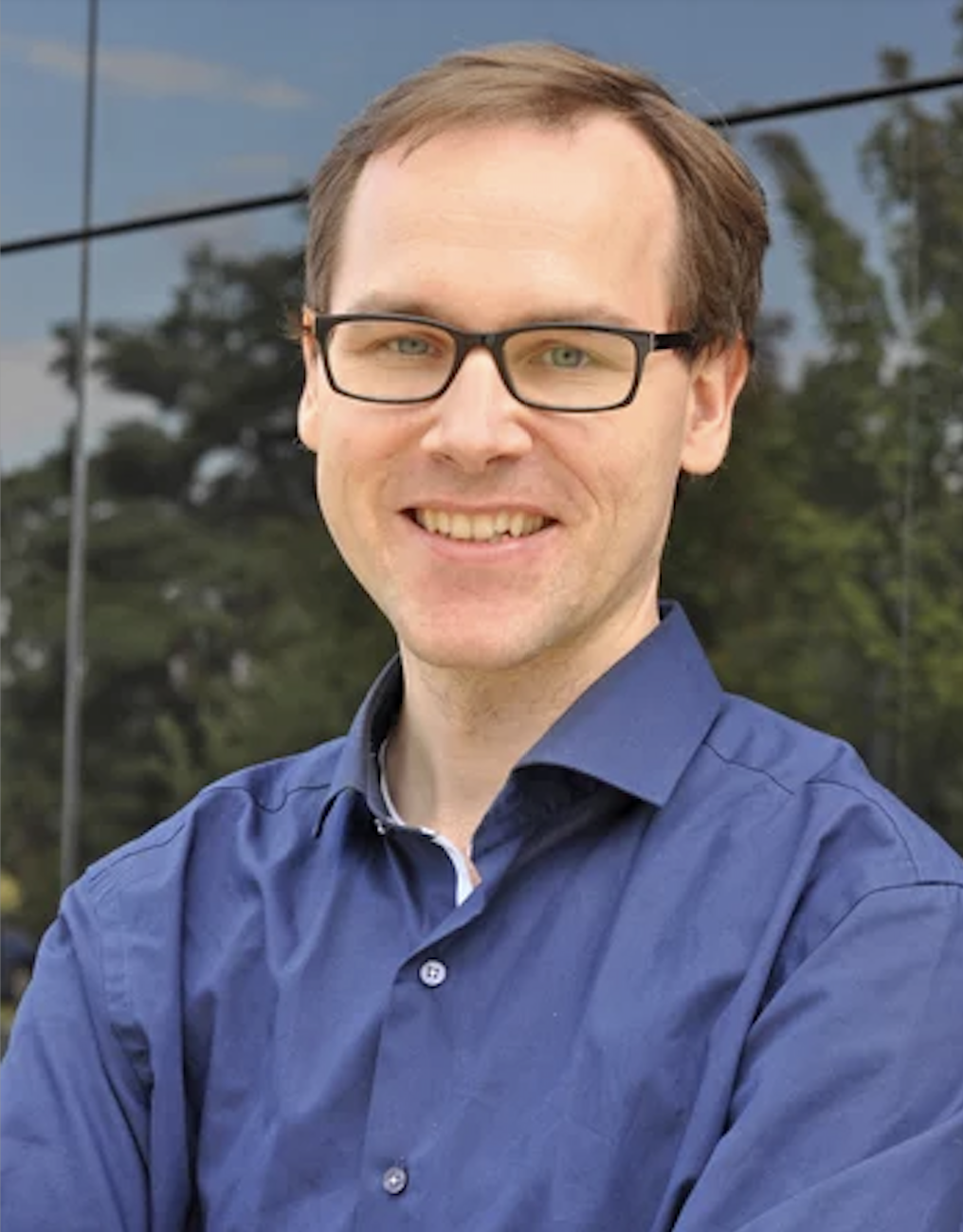Building better quantum computers using machine learning
Abstract: Can we exploit the tools of machine learning for tackling the complexity of building better quantum computers? In this talk, I will describe how one can use machine-learning techniques, specifically reinforcement learning, to address challenges in this domain. One very important area is quantum error correction, which is needed to fight against the unavoidable noise that would otherwise quickly render quantum computers useless. The complex feedback strategies needed in this domain can be discovered using model-free or model-based reinforcement learning. Besides discussing our theoretical advances in this area, I will also describe our recent collaboration with experimentalists in learning real-time feedback strategies for superconducting qubits.
Date and Time
Location
Hosts
Registration
-
 Add Event to Calendar
Add Event to Calendar
- Contact Event Hosts
-
Montréal Quantum Photonics Seminar Series
Main event contacts:
Philippe St-Jean, Professeur Adjoint (Université de Montréal)
Nicolas Quesada, Professeur Adjoint (Polytechnique Montréal)
- Co-sponsored by Montréal Quantum Photonics Seminar Series
Speakers
Florian Marquardt of Max Planck Institute for the Science of Light (Erlangen).
Building better quantum computers using machine learning
Abstract: Can we exploit the tools of machine learning for tackling the complexity of building better quantum computers? In this talk, I will describe how one can use machine-learning techniques, specifically reinforcement learning, to address challenges in this domain. One very important area is quantum error correction, which is needed to fight against the unavoidable noise that would otherwise quickly render quantum computers useless. The complex feedback strategies needed in this domain can be discovered using model-free or model-based reinforcement learning. Besides discussing our theoretical advances in this area, I will also describe our recent collaboration with experimentalists in learning real-time feedback strategies for superconducting qubits.
Biography:
Bio: Florian is a world leader in theoretical quantum optics and optomechanics, and cavity QED. His recent work is focused on exploring the confluence of quantum technologies and advanced computational methods, including machine learning.



